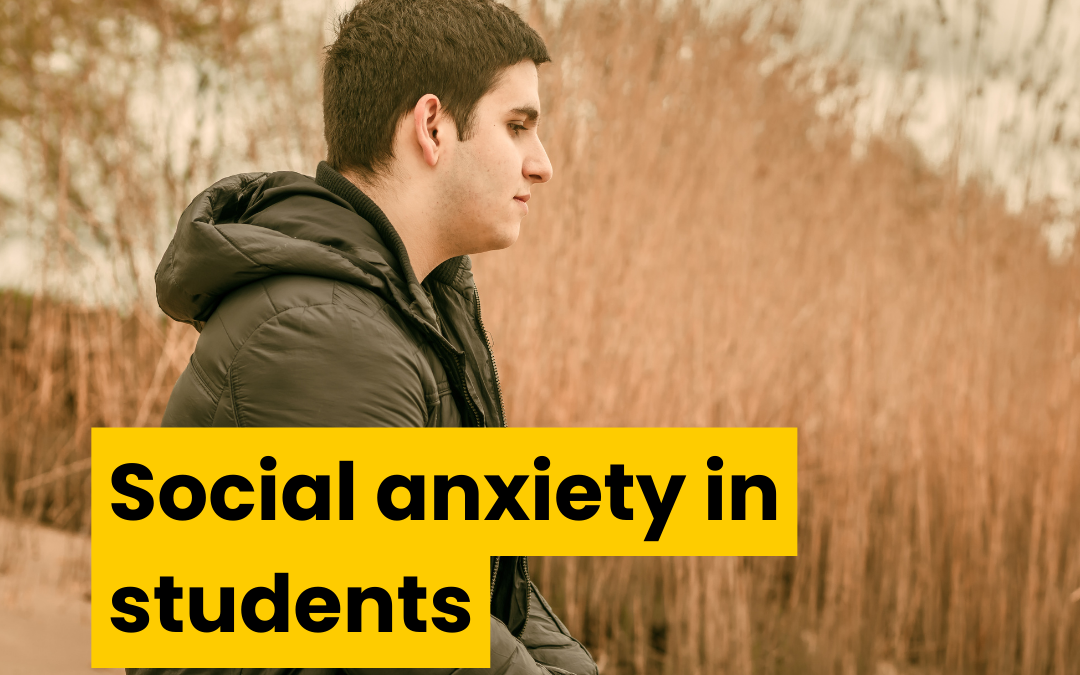Social phobia, or social anxiety disorder, is a type of anxiety disorder. People who have social phobia experience extreme and persistent anxiety associated with social or performance situations. They may have persistent fears about being judged, criticised, ridiculed or humiliated.
Most people feel shy or nervous in certain social situations. Public speaking or entering a roomful of strangers can cause anxiety in many people. However this kind of common apprehension doesn’t indicate a social phobia. It becomes a social phobia when it
- Causes the person to avoid the feared situation
- Means the person endures the situation with intense distress
- Interferes significantly with their daily life including work, education, family and social life.
Men and women are equally affected, though a higher number of men seek treatment. In many cases, social phobia begins with shyness in childhood and progresses during adolescence. The onset of social phobia generally occurs around ages 11 to 15.
Symptoms of social phobia
When exposed to a feared social situation, a person with social phobia can experience symptoms of extreme anxiety, including
- Blushing or trembling
- Accelerated heart rate and sweaty palms
- Nausea or stomach pain
- Shallow, fast breathing
- Tense muscles
- Feeling faint or lightheaded
- Dry throat
The person can experience negative thoughts and emotions including
- Self-doubt and uncertainty
- Feeling as though they’ve nothing to say or are making a fool of themselves
- An overwhelming urge to flee the situation
- Awareness that they’re behaving irrationally or disproportionately
It’s common for someone with social anxiety to struggle on anything other than those physical sensations and negative thoughts.
Feared social situations
Some people with social phobia fear and avoid specific situations, while others may feel generalised anxiety about several social situations. But avoiding those situations just allows our fears to persist.
A person with social phobia can feel anxious just thinking about an upcoming social event. After the event, the person may replay the conversations they had and rate their performance, mostly negatively. This brooding can magnify the uncomfortable feelings and reinforce the desire to avoid social interactions.
Someone with social anxiety may worry that
- their discomfort at social events is obvious to others
- they’ll look silly or ridiculous
- people will think they’re dull or uninteresting
- people will judge them as awkward or inadequate
Dangers of social anxiety
If left untreated, social phobia can severely affect quality of life. People can experience
- Reliance on drugs or alcohol to get through social events
- Difficulty forming and maintaining relationships
- Curtailed education or employment opportunities
- Depression
- Suicidal thoughts
- Isolation from family, peers and community
Treating social anxiety with Cognitive Behaviour Therapy (CBT)
This treatment aims to help people change the way they think, feel and behave in social situations. Techniques may help people to confront their fears. In time, people come to realise that others are unlikely to judge them harshly – and even if it does happen, they realise it’s not a major tragedy. They will also learn that they can exert some control and choice over their thoughts and feelings. Treatment using CBT may include
- Education about the nature of social anxiety
- Challenging and changing false or distorted thoughts and beliefs
- Gradual exposure to feared situations which will help challenge unhelpful thoughts and assess the validity of negative beliefs held
Using anxiety management techniques to cope with social anxiety
Relaxation training and breathing techniques may help a person manage their anxiety symptoms. Some physical anxiety symptoms may be triggered by hyperventilation (over-breathing). Taking slow, deep breaths from the abdomen – rather than fast, shallow breaths from the chest – can reduce anxious feelings.
Social skills training
Some people who have suffered with social phobia for many years may have developed habits that make it difficult for them to make change. For example, people with longstanding social phobias may
- Find it difficult to make or maintain eye contact
- Use soft or hesitant speech
- Display closed body language
- Have rigid facial expressions
- Need a large personal space
- Have difficulty listening or keeping a conversation going
Social skills training methods include modelling of appropriate behaviour, role-playing scenarios to practise skills and then practising these skills in real life situations.
Medication for social anxiety
Some medications, such as selective serotonin re-uptake inhibitors (SSRIs), can help if the person is also suffering from depression. In the short term, medications may be used to help manage some of the symptoms of anxiety.

